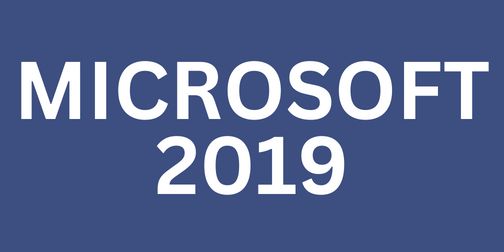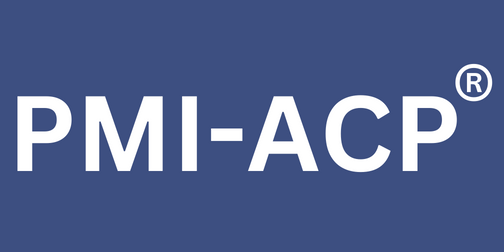
Project Management in the Age of AI: How Automation is Transforming the Field
Posted On May 2, 2024 - 14:44 PM
Project management is an ever-evolving field. New methodologies emerge to address complex challenges, best practices adapt to changing environments, and technology continues to expand its capabilities. One notable recent development in project management is Artificial Intelligence's undisputed rise and significant effect on projects' planning, execution, and delivery.
Artificial Intelligence (AI) offers project managers an incredible edge. Imagine a world in which vast amounts of data could be analysed to predict potential roadblocks before they emerge, resources are allocated precisely, and schedules adjust in real-time as necessary—this is just one of the many possibilities unlocked by AI.
This poses the question: will AI eventually replace project managers entirely? The answer, however, is more nuanced: AI brings a practical set of tools but cannot replace human expertise that remains vital for project success. Let's delve further into how AI is revolutionising project management and why human skills will continue to play an essential role.
Demystifying AI: Your Powerful Ally in Project Management
Artificial intelligence (AI) might sound futuristic, but it's quickly becoming a powerful reality in project management. AI refers to machines' ability to mimic human cognitive functions like learning and problem-solving; an essential subset of AI called Machine Learning allows algorithms to analyse data continuously, improving their performance.
AI-powered project management tools serve as data detectives, scouring through mountainous amounts of project data in search of patterns and predicting issues before they escalate further. Imagine a project management system that compares historical data from similar projects and flags tasks likely to go over budget - enabling project managers to take proactive measures such as assigning additional resources or negotiating with vendors to mitigate risks and keep projects on schedule.
Applications of Artificial Intelligence in project management are vast and ever-evolving, as evidenced by these examples:
Risk Management: AI can analyse past project data to identify factors that have led to delays or budget overruns on similar projects. This allows project managers to proactively identify any risks that might derail a project and develop mitigation plans before things derail entirely.
Resource Allocation: Avoid tedious spreadsheets and guesswork. AI can analyse team member skills and workload to create personalised resource allocation plans, guaranteeing the right people are assigned to specific tasks for maximum efficiency and highest quality project completion.
Project Scheduling: AI tools can analyse project dependencies and resource availability to generate dynamic project schedules that adapt dynamically, keeping projects on schedule even when unexpected roadblocks emerge. These schedules are no longer rigid roadmaps; instead, they are flexible plans that adapt in real-time to any changes, helping avoid delays by accommodating real-time modifications that arise during project execution.
AI should never be seen as a replacement for human expertise. Project managers remain the cornerstone of successful projects, providing experience, strategic decision-making skills, and a human touch. AI serves as a powerful assistant, providing data-driven insights and automating tedious tasks so project managers can focus on larger-picture goals.
Automation Revolution: Streamlining Project Management with AI
AI automation revolutionises project management by streamlining numerous tasks, freeing project managers to focus on strategic issues instead of administrative duties. It opens a world where mundane administrative burdens are lifted off by intelligent systems doing all the legwork themselves—an exciting future awaits us with its advent.
Here is a glimpse at some of the tasks being automated within project management:
Progress Tracking and Reporting: Say goodbye to manual data entry and tedious progress reports with AI's automatic tracking based on task completion, real-time updates to reports, and identification of any areas behind schedule. This frees project managers to focus more on analysing data and making informed decisions based on trends than manual entry/reporting tasks.
Meeting Scheduling and Agenda Creation: Scheduling meetings is often inefficient, time-consuming, and frustrating. AI can streamline this process by quickly finding suitable times for all attendees, scheduling the meeting itself, and creating draft agendas based on meeting objectives—saving both time and ensuring everyone comes prepared to discuss all relevant topics during meetings.
Communication and Collaboration: Communication breakdowns and information silos can impede project success, so chatbots powered by AI can fill this void by responding 24/7 to team member inquiries, providing project updates, and facilitating communication within teams - resulting in faster information sharing, which keeps everyone on the same page.
Meeting Scheduling and Agenda Creation: Project management often requires dealing with large volumes of data compiled from various sources. AI can automate data entry, eliminating the risk of human error while saving considerable time. Furthermore, AI analysis allows project managers to make data-driven decisions to optimise project outcomes.
Repetitive Administrative Tasks: Administrative tasks such as sending reminders, updating documents, and managing approvals can consume significant portions of a project manager's time. AI technology can automate these repetitive processes so that managers can dedicate more of their effort to more strategic tasks such as risk management, team leadership, and stakeholder communication.
Automation offers several advantages for project management:
Increased Efficiency and Productivity: By automating manual tasks, project teams can complete work faster with fewer errors, leading to quicker completion times and enhanced overall project performance.
Reduce Human Error and Improve Accuracy: Automation removes human error in repetitive tasks, leading to more accurate data and enhanced project outcomes. This increases project managers' trust in using this data when making decisions.
Time for Strategic Thinking: By freeing themselves from time-consuming administrative tasks, project managers can devote more of their attention and energy to strategic planning, risk management, and team leadership—areas that have the greatest influence on project success.
AI automation is an indispensable asset in project management. It helps teams work smarter rather than harder by streamlining processes and freeing up valuable time for strategic considerations.
The Irreplaceable Human Touch: Why Soft Skills Still Rule in Project Management
AI automation may excel at streamlining tasks, but its human element remains indispensable in project management. AI excels at processing data and managing repetitive tasks, but it lacks critical human characteristics for ensuring successful projects—here, emotional intelligence takes centre stage.
Emotional intelligence refers to the ability to recognise and control one's own emotions as well as those of others, an essential skill for project managers who must effectively:
Motivate and Lead Teams: Project managers are at the core of any successful project. They guide and inspire their team members, create an enjoyable work environment, and cultivate positivity and productivity in the office. Artificial Intelligence cannot replicate human interactions that foster strong, high-performing teams.
Effective Communication and Conflict Resolution: Effective communication is central to project success. Project managers must effectively share goals, expectations, roadblocks, and conflicts among all stakeholders and resolve them within their team. AI may assist by automating tasks; however, open and honest conversations need human understanding and diplomacy for full success.
Adaptability and Problem Solving in Unexpected Circumstances: Even the best-laid plans can go astray. Projects rarely run according to plan, and unexpected challenges will inevitably emerge. Project managers require critical thinking skills as well as adaptability when faced with unexpected hurdles. AI may identify risks but cannot replace human ingenuity for successfully navigating unexpected hurdles.
Project managers in an age of AI are seeing their role evolve rapidly. Here's what lies in store for their future:
Overseeing and Administering AI Tools: Project managers must become adept at using AI tools and understand their capabilities and limitations to utilise AI to maximise team performance and project outcomes.
Focus on Team Development and Foster Collaboration: Communication and collaboration are integral to project success, so project managers play a pivotal role in creating a positive team atmosphere and cultivating trust between team members. AI may automate communication tasks; however, developing strong team dynamics requires human interaction and leadership.
Strategic Decision-Making and Course Correction: While artificial intelligence (AI) provides valuable data and insights, project managers are ultimately accountable for making strategic decisions based on their experience, knowledge of project goals and the ever-evolving project landscape. AI may be an excellent advisor, yet human judgment and strategic thinking remain crucial for project success.
AI is revolutionising project management, but it won't replace project managers. Instead, its future lies in collaboration between human expertise and AI capabilities; adopting AI while sharpening soft skills could bring project managers new levels of efficiency and success in years to come.
Equipping Yourself for the Future: Upskilling in the Age of AI
Knowledgewood, a premier provider of project management training, recognizes that project managers must remain constantly adaptable to remain successful in an AI era. We provide training solutions designed to equip professionals with the skills necessary for success in today's unpredictable project management landscape.
Knowledgewood's expansive course catalogue features an array of project management courses tailored to different skill levels and career goals. These courses offer a foundational understanding of project management principles as well as advanced techniques. If that sounds like something that interests you, consider exploring courses such as "Project Management Fundamentals with Agile Techniques" or "Leveraging AI for Effective Project Management."
As AI transforms project management practices, staying ahead of the curve is increasingly essential. By investing in your professional development through strategic learning initiatives, you can ensure you possess the necessary skills for successfully navigating AI's impactful future of project management. Knowledgewood stands by you on this exciting journey toward success.
Conclusion
AI offers project managers an exciting new frontier for project management. By taking advantage of AI-powered tools and automation, project teams can reach unprecedented efficiency, accuracy, and productivity levels. However, human skills remain indispensable; emotional intelligence, strategic decision-making skills and the ability to navigate unanticipated obstacles remain invaluable abilities.
Utilise AI as a powerful ally, but don't overlook the importance of continuous learning. Arm yourself with the skillsets needed to thrive in today's ever-evolving project management landscape - Knowledgewood offers comprehensive project management training programs designed to give you everything you need for a rewarding career in project management. Visit us now and discover more about this rewarding profession.


















